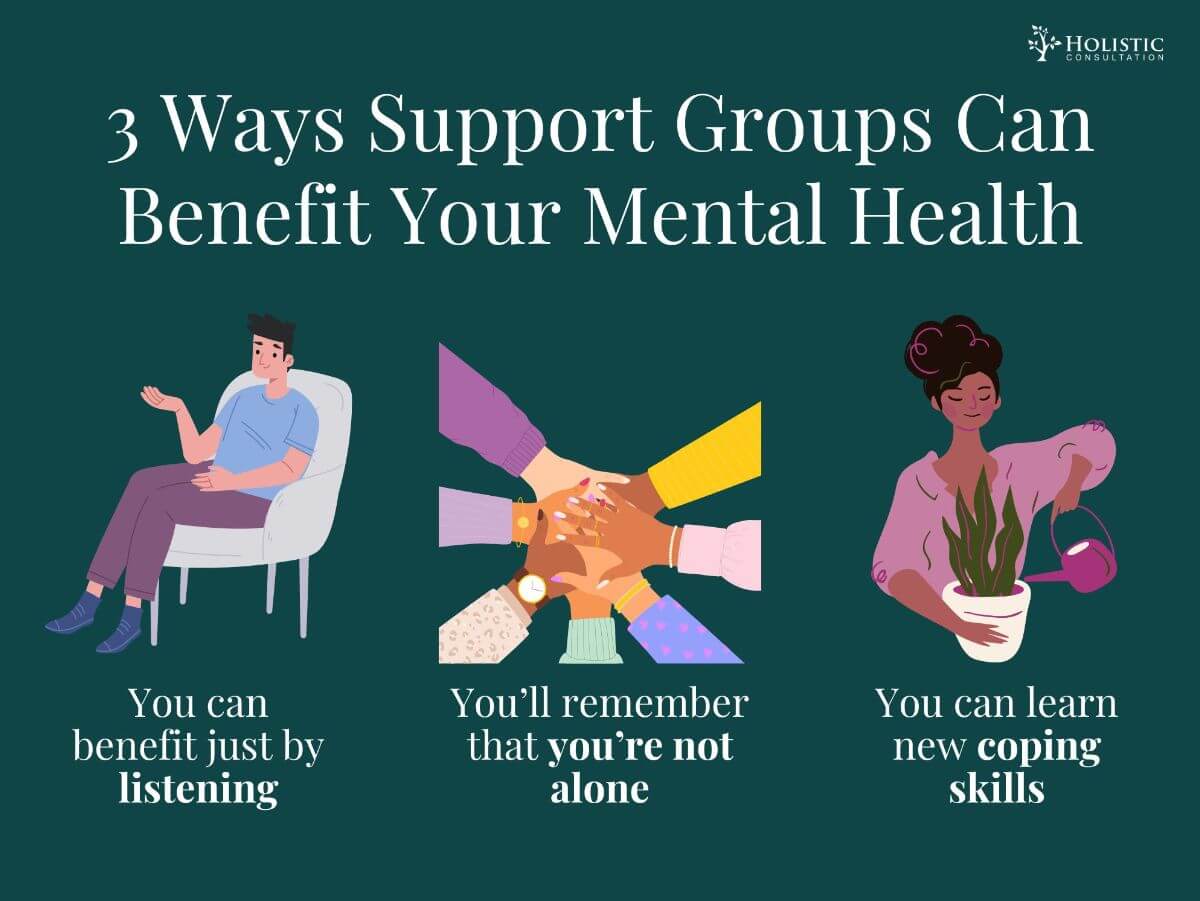Examine This Report on Mental Health Counseling
Examine This Report on Mental Health Counseling
Blog Article
8 Easy Facts About Mental Health Counseling Explained
Table of ContentsThe Best Guide To Mental Health CounselingThe Single Strategy To Use For Mental Health CounselingThe Best Strategy To Use For Mental Health CounselingThe 5-Minute Rule for Mental Health CounselingThe 8-Minute Rule for Mental Health Counseling
Via treatment, you can get understanding into your own patterns of behavior and communication, which can lead to more meeting and pleasing partnerships with friends, family, and romantic partners. What we assume, we show up. If you're taken in with unfavorable emotions and negative ideas that are disrupting your life, treatment can assist., or there are various other negative ways you act. Therapy can assist you alter those habits that are having a negative effect on your world and relationships.

Obtaining therapy to attend to particular elements of your life can aid you be much more efficient in various other areas, consisting of job.

The Only Guide for Mental Health Counseling
There are even much more benefits of therapy than just the ones we have actually reviewed., or construct partnerships (charming or those with household or pals) in a healthy way.
For the objective of the existing research study, perceived advantages and obstacles to mental health help-seeking are being discovered. Previous research study found that regarded obstacles have a substantial impact on university student' health and wellness habits choices (Von Ah, Ebert, Ngamvitroj, Park & Kang, 2003). Regarded advantages and barriers to help-seeking were especially chosen due to their impact on decision-making and eventually action (Glanz, Rimer, & Su, 2005).
Today research seeks to examine whether stigma offers as a barrier to treatment amongst university students. Eisenberg et al. (2011) recommended that suspicion about therapy effectiveness is another barrier to participating in therapy. Research study findings revealed that university student backed numerous barriers to participating in therapy. Mental Health Counseling. Among these were: (1) favoring to deal with psychological health issue themselves, (2) not having sufficient time to take part in therapy, (3) concerns concerning whether psychological health and wellness treatment works in remediating issues, (4) an idea that tension is regular or the problem will certainly obtain much useful reference better without therapy, (5) lack of money, and (6) fret about what others would certainly think if they discovered out concerning therapy engagement.
(2006) reported comparable variables as obstacles to seeking treatment and likewise located that a skepticism of carriers might impede students from seeking help. Personnel in school psychological university hospital may be viewed as hostile, and long wait times for solutions may be "off-putting" for pupils. Elements assisting in more positive perspectives are frequently at the opposite pole of those factors identified as obstacles.
More About Mental Health Counseling
One in three (34.6%) reported surviving campus and one in 4 (23.3%) anonymous reported living with moms and dads. Almost half of pupils were included in campus companies and 1 in 10 reported remaining in a fraternity or sorority. Even more than one-third of trainees (38.1%) reported that they had a family participant or friend with an identified psychological health and wellness problem.

All about Mental Health Counseling
Univariate F-tests determined details subscale things that significantly differed. Females were less most likely than men to regard people that most likely to counseling as psychologically weak, people who most likely to therapy as crazy, to feel that individuals with mental illness should handle problems on their very own, that people that go to counseling as not able to solve troubles, that people who go to counseling slouch, and to really feel that individuals who most likely to therapy are various from normal people in an adverse means.
Likewise, study results exposed that females were dramatically less most likely than males to hold stigma-related perspectives. This follows previous research which likewise located that males hold greater levels of viewed preconception than females (Chandra & Minkovitz, 2006). Based upon study searchings for, it appears that men might be less most likely than ladies to seek therapy due to reduced perceived barriers along with high stigma-related attitudes.
All About Mental Health Counseling
In enhancement, university wellness professionals may provide curricula targeting men with info on the advantages of psychological health treatment and the significance of looking for aid when required. All strategies should be assessed with future research study to figure out the impact on university student, especially men. In contrast to basic population research studies which expose that ladies are most likely to look for psychological health and wellness services compared to men (Haunstein et al., 2006; Mackenzie, Gekoski, & Knox, 2006), the existing research discovered no considerable differences in the number of regarded obstacles to help-seeking habits based on sex.
This finding was unforeseen and could highlight that those that had gotten counseling had a better idea of delay times and various other "accessibility" barriers that may make it tough to begin therapy. Maybe, participants that have received counseling view a lot more barriers than individuals who have not obtained therapy considering that seeking counseling services again could entail worry of self-disclosing individual information to a new therapist.
Report this page